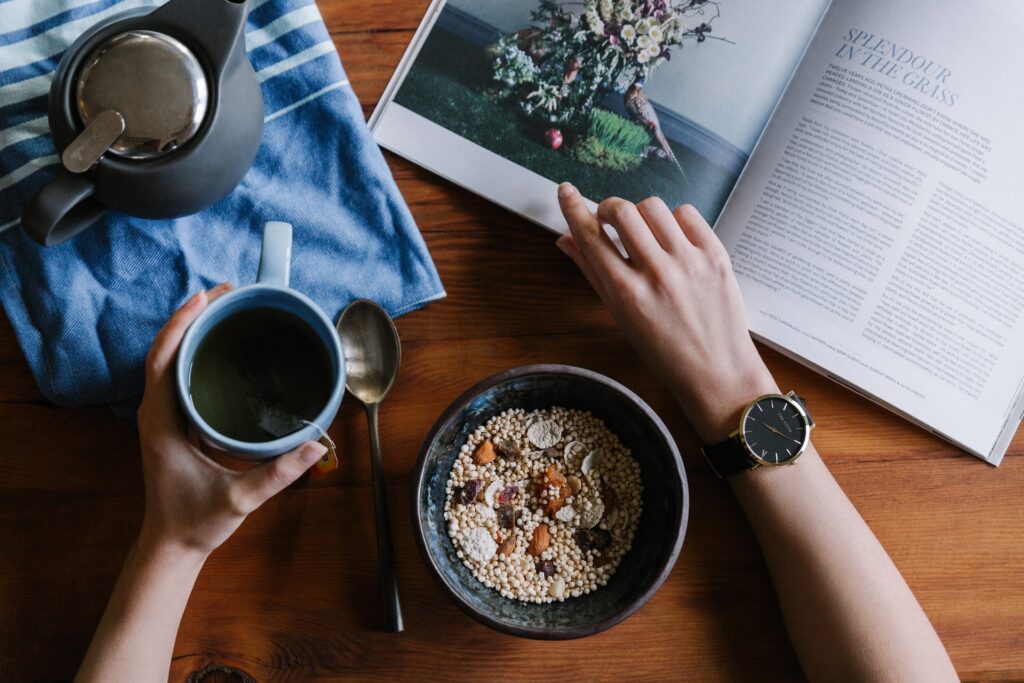
Six Low-Cost Strategies to Boost Your Mental Wellbeing
Mental health and emotional wellbeing have been top of the agenda in the last few years, and whilst more people than ever seem to be struggling post-pandemic and amidst a cost-of-living crisis, you can boost your mental wellbeing with a few simple strategies – and it doesn’t need to cost a lot.
1) Relax and reduce stress
If life feels a little difficult right now, the first thing to do is learn to relax so you can reduce stress.
Unnecessary worry will raise your cortisol levels (the stress hormone) which plays havoc in your body, leading to poor physical and mental health.
You need to begin to recognise when you feel stressed and take the time to pause or have some alone time.
Intentional relaxation is also essential. It doesn’t matter if you choose to enjoy a magazine with a cup of tea, a deep bubble bath, or a long walk in the countryside, just be sure to take some time on a regular basis to relax.
2) Spend time in nature
The power of spending time in nature should not be underestimated.
Countless studies have shown the benefits of nature on mental health and how it can naturally boost your mood.
Simply having a cuppa in your garden each morning can help to transform your outlook. Or you can visit a local park, nature reserve, or woodland, to explore and experience all nature has to offer.
You might also like: 7 Ideas to Enjoy Nature for Better Mental Health
3) Look after your physical health
Ever felt like your doctor is a broken record on this topic? That’s because looking after your physical health with a balanced diet, daily movement and regular exercise is a key factor in good health, and that includes good mental health too.
You might not realise it, but what you eat can affect your brain and mental health as much as your belly and physical health. So, cutting back on sugar and carb-heavy foods can really boost your mental wellbeing.
Movement and exercise help keep your bones strong, your body supple, and your mind clear. And is a great way to combat chronic brain-fog.
Exercise that gets your heart pumping, such as running, swimming, or dancing, causes the body to release feel-good hormones called endorphins. If you’ve ever heard of “runners-high” it’s the rush of endorphins that makes people feel great after running.
Regular physical activity can also increase your dopamine and serotonin levels, making it a great way to flood more ‘happy’ hormones into your system.
4) Get good sleep
Good sleep isn’t just about the amount of sleep you get, it’s about the quality too.
When we sleep, we go through several sleep cycles which involves different types of sleep such as light sleep, deep sleep, and REM sleep (where dreams happen).
If we don’t sleep well, we can feel unmotivated and irritable during the day and this can negatively impact our work and relationships with others, which in turn can lead to a decline in mental health.
There are many ways to improve sleep. You can make your bedroom cooler and darker, ensure you go to bed and wake up at the same time each day (including weekends), and have a good evening routine to wind down before bed so you are relaxed and sleepy.
5) Find ways to learn and be creative
Having a creative outlet can offer a way to include mindfulness into our lives which is a great way to boost your mental wellbeing.
There are endless ways to get creative. From knitting to baking and writing to painting.
Learning something new (such as a language, a musical instrument, or even a course to build new skills and knowledge) helps to improve focus, expand neural pathways in the brain, aid as a positive distraction, lift your mood, and help you feel pride in your achievements.
6) Connect with others
We crave human connection, it’s just part of who we are, and we know that isolation has a serious impact on people’s mental health and wellbeing.
Connecting with others could be as simple as chatting to a neighbour over the garden fence, sending a message to a family member you haven’t seen in a while, enjoying an afternoon out with a friend, or spending some quality time with your partner.
If you’re struggling to feel positive about life at the minute, that’s ok.
Maybe you need some deeper connection to overcome a difficult situation or move on from something that happened in your past. It’s completely normal for challenging times to trigger old trauma and I’m here to help whenever you are ready.
The psychotherapeutic counselling I offer is confidential and holistic – meaning that we focus on your as a whole person, mind, body and soul, to help boost your mental wellbeing.
You can contact me to book a session or find out more.
